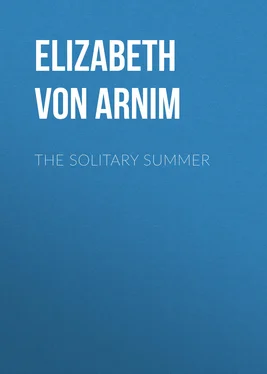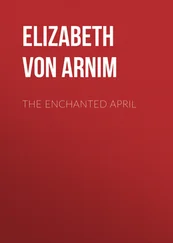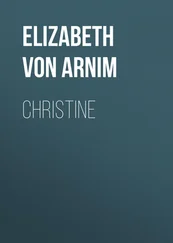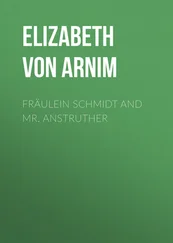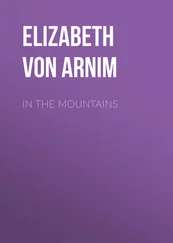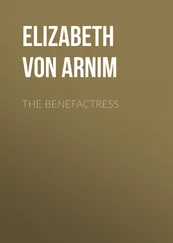Elizabeth von Arnim - The Solitary Summer
Здесь есть возможность читать онлайн «Elizabeth von Arnim - The Solitary Summer» — ознакомительный отрывок электронной книги совершенно бесплатно, а после прочтения отрывка купить полную версию. В некоторых случаях можно слушать аудио, скачать через торрент в формате fb2 и присутствует краткое содержание. Жанр: foreign_prose, foreign_antique, на английском языке. Описание произведения, (предисловие) а так же отзывы посетителей доступны на портале библиотеки ЛибКат.
- Название:The Solitary Summer
- Автор:
- Жанр:
- Год:неизвестен
- ISBN:нет данных
- Рейтинг книги:4 / 5. Голосов: 1
-
Избранное:Добавить в избранное
- Отзывы:
-
Ваша оценка:
- 80
- 1
- 2
- 3
- 4
- 5
The Solitary Summer: краткое содержание, описание и аннотация
Предлагаем к чтению аннотацию, описание, краткое содержание или предисловие (зависит от того, что написал сам автор книги «The Solitary Summer»). Если вы не нашли необходимую информацию о книге — напишите в комментариях, мы постараемся отыскать её.
The Solitary Summer — читать онлайн ознакомительный отрывок
Ниже представлен текст книги, разбитый по страницам. Система сохранения места последней прочитанной страницы, позволяет с удобством читать онлайн бесплатно книгу «The Solitary Summer», без необходимости каждый раз заново искать на чём Вы остановились. Поставьте закладку, и сможете в любой момент перейти на страницу, на которой закончили чтение.
Интервал:
Закладка:
The first two years I had this garden, I was determined to do exactly as I chose in it, and to have no arrangements of plants that I had not planned, and no plants but those I knew and loved; so, fearing that an experienced gardener would profit by my ignorance, then about as absolute as it could be, and thrust all his bedding nightmares upon me, and fill the place with those dreadful salad arrangements so often seen in the gardens of the indifferent rich, I would only have a meek man of small pretensions, who would be easily persuaded that I knew as much as, or more than, he did himself. I had three of these meek men one after the other, and learned what I might long ago have discovered, that the less a person knows, the more certain he is that he is right, and that no weapons yet invented are of any use in a struggle with stupidity. The first of these three went melancholy mad at the end of a year; the second was love-sick, and threw down his tools and gave up his situation to wander after the departed siren who had turned his head; the third, when I inquired how it was that the things he had sown never by any chance came up, scratched his head, and as this is a sure sign of ineptitude, I sent him away.
Then I sat down and thought. I had been here two years and worked hard, through these men, at the garden; I had done my best to learn all I could and make it beautiful; I had refused to have more than an inferior gardener because of his supposed more perfect obedience, and one assistant, because of my desire to enjoy the garden undisturbed; I had studied diligently all the gardening books I could lay hands on; I was under the impression that I am an ordinarily intelligent person, and that if an ordinarily intelligent person devotes his whole time to studying a subject he loves, success is very probable; and yet at the end of two years what was my garden like? The failures of the first two summers had been regarded with philosophy; but that third summer I used to go into it sometimes and cry.
As far as I was concerned I had really learned a little, and knew what to buy, and had fairly correct notions as to when and in what soil to sow and plant what I had bought; but of what use is it to buy good seeds and plants and bulbs if you are forced to hand them over to a gardener who listens with ill-concealed impatience to the careful directions you give him, says Jawohl a great many times, and then goes off and puts them in in the way he has always done, which is invariably the wrong way? My hands were tied because of the unfortunate circumstance of sex, or I would gladly have changed places with him and requested him to do the talking while I did the planting, and as he probably would not have talked much there would have been a distinct gain in the peace of the world, which would surely be very materially increased if women's tongues were tied instead of their hands, and those that want to could work with them without collecting a crowd. And is it not certain that the more one's body works the fainter grow the waggings of one's tongue? I sometimes literally ache with envy as I watch the men going about their pleasant work in the sunshine, turning up the luscious damp earth, raking, weeding, watering, planting, cutting the grass, pruning the trees—not a thing that they do from the first uncovering of the roses in the spring to the November bonfires but fills my soul with longing to be up and doing it too. A great many things will have to happen, however, before such a state of popular large-mindedness as will allow of my digging without creating a sensation is reached, so I have plenty of time for further grumblings; only I do very much wish that the tongues inhabiting this apparently lonely and deserted countryside would restrict their comments to the sins, if any, committed by the indigenous females (since sins are fair game for comment) and leave their harmless eccentricities alone. After having driven through vast tracts of forest and heath for hours, and never meeting a soul or seeing a house, it is surprising to be told that on such a day you took such a drive and were at such a spot; yet this has happened to me more than once. And if even this is watched and noted, with what lightning rapidity would the news spread that I had been seen stalking down the garden path with a hoe over my shoulder and a basket in my hand, and weeding written large on every feature! Yet I should love to weed.
I think it was the way the weeds flourished that put an end at last to my hesitations about taking an experienced gardener and giving him a reasonable number of helpers, for I found that much as I enjoyed privacy, I yet detested nettles more, and the nettles appeared really to pick out those places to grow in where my sweetest things were planted, and utterly defied the three meek men when they made periodical and feeble efforts to get rid of them. I have a large heart in regard to things that grow, and many a weed that would not be tolerated anywhere else is allowed to live and multiply undisturbed in my garden. They are such pretty things, some of them, such charmingly audacious things, and it is so particularly nice of them to do all their growing, and flowering, and seed-bearing without any help or any encouragement. I admit I feel vexed if they are so officious as to push up among my tea roses and pansies, and I also prefer my paths without them; but on the grass, for instance, why not let the poor little creatures enjoy themselves quietly, instead of going out with a dreadful instrument and viciously digging them up one by one? Once I went into the garden just as the last of the three inept ones had taken up his stand, armed with this implement, in the middle of the sheet of gold and silver that is known for convenience' sake as the lawn, and was scratching his head, as he looked round, in a futile effort to decide where he should begin. I saved the dandelions and daisies on that occasion, and I like to believe they know it. They certainly look very jolly when I come out, and I rather fancy the dandelions dig each other in their little ribs when they see me, and whisper, "Here comes Elizabeth; she's a good sort, ain't she?"—for of course dandelions do not express themselves very elegantly.
Читать дальшеИнтервал:
Закладка:
Похожие книги на «The Solitary Summer»
Представляем Вашему вниманию похожие книги на «The Solitary Summer» списком для выбора. Мы отобрали схожую по названию и смыслу литературу в надежде предоставить читателям больше вариантов отыскать новые, интересные, ещё непрочитанные произведения.
Обсуждение, отзывы о книге «The Solitary Summer» и просто собственные мнения читателей. Оставьте ваши комментарии, напишите, что Вы думаете о произведении, его смысле или главных героях. Укажите что конкретно понравилось, а что нет, и почему Вы так считаете.
